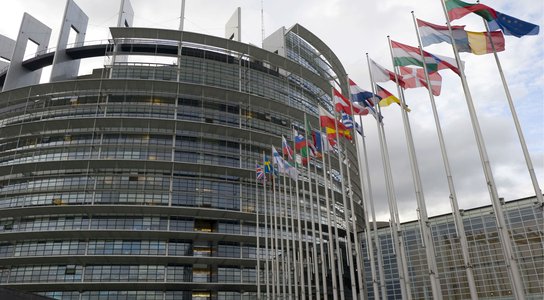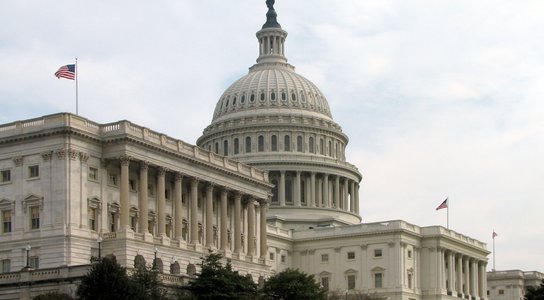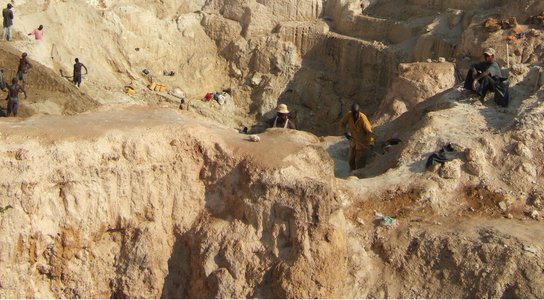Global Witness is pleased to have contributed to the development of the pilot Alignment Assessment of Industry Programmes with the OECD Minerals Guidance. This assessed five prominent industry schemes against the OECD Due Diligence Guidance, which is the leading international standard for the responsible sourcing of minerals.
In recent years, industry-led schemes have grown in number and influence. The pilot Assessment and accompanying Tool are a welcome and new source of information on how such schemes measure against the OECD’s international benchmark. We remain concerned, however, that the findings of today’s report may be misconstrued, and that the tools developed may, in the future, be used as a shortcut to compliance in place of a more meaningful examination of mineral supply chains.
The OECD Due Diligence Guidance is the leading international standard companies must meet to demonstrate that they source minerals responsibly. As noted in the Guidance, industry-led schemes can help companies conduct their due diligence more effectively and efficiently, but cannot replace a company’s own and individual responsibilities. Due diligence cannot be outsourced.
The five industry schemes involved in this pilot assessment have made significant changes to their paper-based standards, bringing them further in line with the OECD’s standard.
We hope the methodology and tools developed will continue to yield information that drives progress and reform in this area. But in order to secure the value and credibility of this information, it is critical that also the limitations of these new instruments are recognised and acknowledged.
The Alignment Assessment was designed and intended to assess industry schemes, not their individual member companies.
Where robustly applied, the Alignment Assessment Methodology and Tool can provide information about a programme’s paper-based standards and, if an appropriate sample is used, some indicative information about the extent to which they are implemented in practice. Where the optional and additional “Programme Governance Review” is used, some further information can be generated about the extent to which a given scheme enforces its standards against individual member companies.
An assessment based on the Methodology and Tool cannot, however, conclude that a given programme’s requirements are consistently implemented against each and every one of its member companies. These new resources cannot, therefore, support conclusions about the quality of an individual member company’s supply chain due diligence practices, even where a scheme scores well in an assessment. Today’s report sets this out clearly in the Executive Summary.
The European Union must be especially vigilant to these limitations when developing their methodology for recognising industry schemes under the EU’s new Responsible Sourcing Regulation and when populating the accompanying list of responsible smelters and refiners. Using the Assessment to draw specific conclusions about the due diligence practices of individual companies simply by virtue of their membership of an industry scheme would risk the creation of a white-washing mechanism rather than a reliable resource for companies.
Global Witness also cautions against a continued reliance on audits—as runs throughout the Methodology and Tool—both by companies wishing to demonstrate compliance and by assessors wishing to verify it. Historically, audits have proved an unreliable and imperfect method for assessing company behaviour. Under the OECD standard, companies are expected to look beyond audits when assessing their suppliers. Policy makers and industry schemes must do the same.
Today’s report appropriately notes the progress that participating schemes have made during the assessment period. Bridging the gap between these paper-based requirements and their implementation by individual companies now remains an important challenge. Ultimately it is the behaviour of individual companies—not industry schemes—that will shape the environment in which minerals are extracted and traded globally. Improving the requirements of industry schemes will serve only as a distraction if these efforts are not matched by changes in the behaviour of individual companies.
Global Witness looks forward to continuing its support of efforts to ensure industry schemes are fully aligned with the OECD standard, and challenging companies to continually improve their due diligence practices and reporting, to the ultimate benefit of miners and mineral producing communities.
/ ENDS
Contacts
You might also like
-
Briefing Conflict Minerals in Europe
After years of campaigning by Global Witness and civil society partners the EU has reached a political understanding on a new law intended to break the links between the minerals trade, conflict and human rights abuses.
-
Briefing US Conflict Minerals Law
In 2010, US Congress passed a landmark law - section 1502 of the Dodd Frank Act - requiring companies to determine if their products contain one or more of four minerals sourced from Congo or its neighbours.
-
Briefing Conflict Minerals in Eastern Congo
Resource-fuelled conflict has contributed to instability in Congo’s east for over two decades.